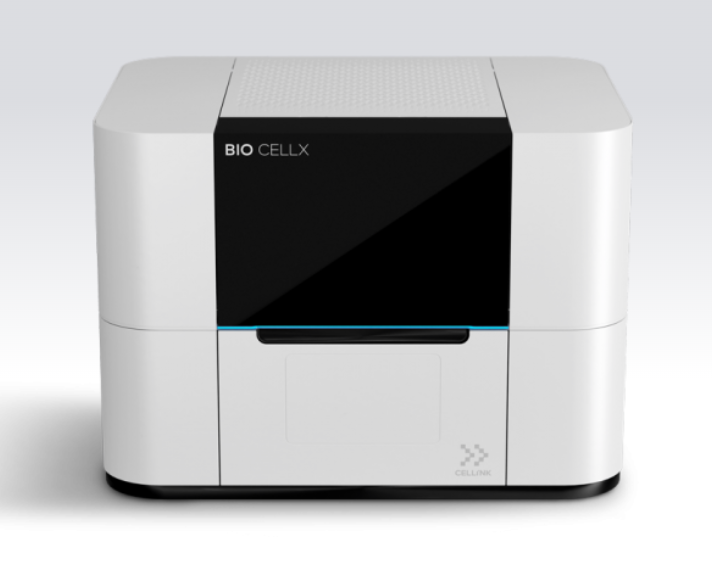Carcinotech and 3D bioprinting firm CELLINK have announced a partnership to accelerate cancer drug development with 3D bioprinted tumor models.
The partnership will focus on the development and commercialization of cutting-edge protocols for the biofabrication of 3D bioprinted tumor models using cancer cell lines. These models are designed to significantly improve accuracy and speed up drug development processes, ultimately reducing development costs and enhancing research output. The protocols will be made available for use on CELLINK’s state-of-the-art BIO CELLX system.
“We are looking forward to seeing the impact of this partnership on the oncology research community and look forward to the advancements that will be made in cancer research through the use of Carcinotech’s optimized cancer models. Combining Carcinotech’s in depth understanding of cancer, and CELLINK’s BIO CELLX system’s precision and reproducibility, we hope to provide a new degree of efficiency to cancer research workflows,” said Cecilia Edebo, CEO CELLINK.
3D bioprinting cancer models for faster drug development
Cancer remains a global health challenge, with an estimated 19.3 million cancer cases and nearly 10 million cancer-related deaths occurring worldwide in 2020, says the company. Despite advances in medicine, effective cancer therapies are limited, and their efficacy varies significantly from patient to patient. The partnership between Carcinotech and CELLINK aims to address these challenges by providing researchers with advanced tools to enhance drug development and improve the understanding of cancer biology.
By working with patient-derived biopsies, immune cells, and cancer stem cells, Carcinotech has played a crucial role in assisting researchers in optimizing drug testing workflows. The protocols developed in collaboration with CELLINK will utilize cell line-based 3D models, significantly reducing research timelines. These models have been meticulously designed to incorporate the physiological representative ratio of five key cell types relevant to each cancer type, using widely available cell lines.
These protocols will ensure the creation of 3D bioprinted cancer models that have undergone rigorous quality control measures, guaranteeing their reliability and accuracy. As part of the agreement between CELLINK and Carcinotech, these protocols will be made available on CELLINK’s BIO CELLX 3D biodispenser. The BIO CELLX is a biodispensing system that allows customers to automate 3D cell culture workflows. By offering these protocols, CELLINK and Carcinotech aim to enable drug development researchers to achieve faster and more precise results.
This partnership builds on the foundation laid by CELLINK and Carcinotech in their initial collaboration in 2020, which aimed to advance 3D bioprinting technology for cancer research. This earlier partnership combined Carcinotech’s expertise in patient-derived tumor replicas with CELLINK’s novel bioinks, Extra Cellular Matrix (ECM), and Laminin-based Bioinks, “enabling human cells to grow and thrive as they would in the human body,” says the company.

3D printing technologies pave the way for cancer treatment
Manufacturing on Demand
Researchers at Queen’s University Belfast introduced a novel approach by harnessing 4D printing for customized breast cancer implants, marking a first in this field. 4D printing involves crafting dynamic 3D objects from adaptable “smart materials” with adjustable characteristics responsive to external stimuli like pH, temperature, humidity, light, or magnetic fields. Leveraging this technology, the team designed versatile breast implants capable of resizing to easily fit a patient’s tissue cavity, enhancing personalization and aesthetic results. Additionally, these 4D printed implants can precisely dispense chemotherapy drugs to the target area, safeguarding against cancer cell recurrence.
Last year, Manipal Hospitals in India achieved a notable medical feat using a 3D printed titanium implant to reconstruct a cancer patient’s chest bone and ribs. The patient, suffering from a rare and complex cancer, faced a grim prognosis until a customized titanium implant was created from a 3D model. Surgeons removed the tumor, the sternum, and ribs, replacing them with a lightweight implant, allowing the patient to breathe normally without dependence on mechanical ventilation.
You might also like:
AMSI Bangalore 2023: Trends in the Indian Medical 3D Printing Sector: 3D Printing Industry visited the Additive Manufacturing Society of India’s (AMSI) conference in Bangalore to learn more about the use of additive manufacturing in the world’s second most populated country. At AM 2023, we heard from medical experts how they hope technology could change the lives of millions.
* This article is reprinted from 3D Printing Industry. If you are involved in infringement, please contact us to delete it.
Author: Ada Shaikhnag

Leave A Comment